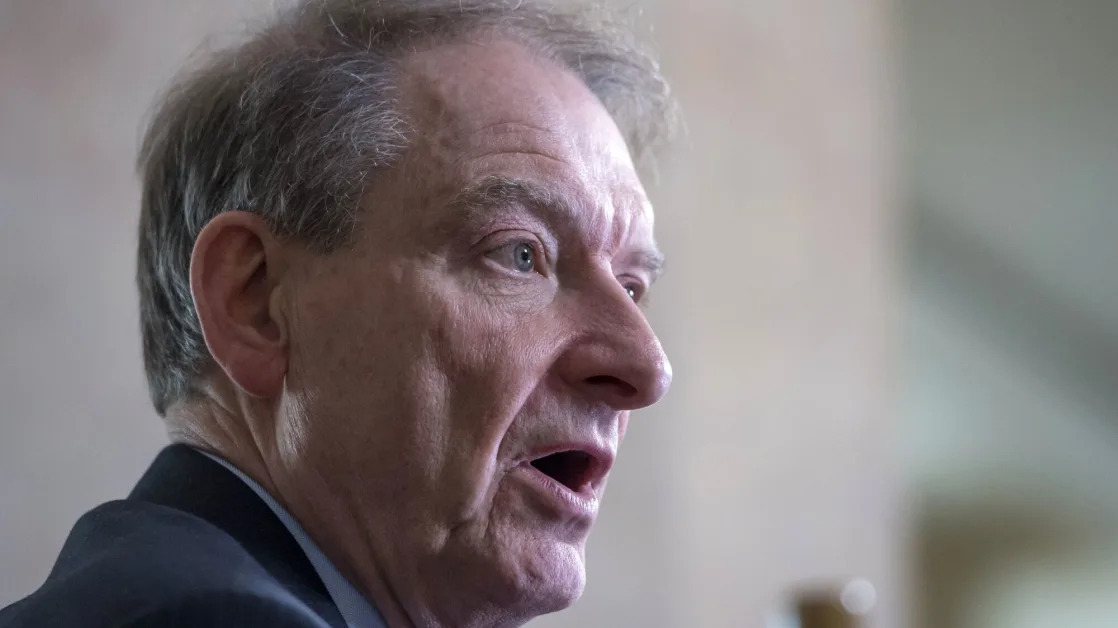(Bloomberg) -- Paul Atkins, Donald Trump’s pick to lead the Securities and Exchange Commission, once blamed an unusual suspect for the collapse of Sam Bankman-Fried’s FTX crypto exchange: The US government itself.
Atkins, 66, had a front row seat to the FTX disaster that still resonates through the digital-asset world. His Washington-based consulting firm Patomak Global Partners is listed as a creditor in the FTX bankruptcy for a board-advisory consulting agreement dated January 2022, about 10 months before Bankman-Fried’s firm blew up. It also served as an FTX lobbyist, according to court documents.
“The collapse of FTX was this international debacle that happened because, I think, the US didn’t make our rules accommodating to this new technology,” Atkins said on a podcast last year, while acknowledging that fraudulent behavior by Bankman-Fried was at the center of the exchange’s demise.
The remarks echo years of gripes from executives in the crypto industry about what they consider to be legal gray areas overhanging digital assets, and underscore how dramatically the regulatory outlook will potentially change as Trump returns to the White House. The former crypto cynic has vowed to support the industry and appoint regulators who love crypto, a sharp reversal from the Biden administration’s crackdown following the collapse of FTX and several other bankruptcies that cost crypto investors billions of dollars.
Atkins’ nomination was greeted with jubilation in crypto, as evidenced by a jump in prices that sent Bitcoin above $100,000 for the first time in the hours after the announcement. Patomak had also previously advised Reserve, a blockchain stablecoin company.
Atkins didn’t respond to requests for comment.
A former SEC commissioner during President George W. Bush’s administration and previously a staff member at the regulator, Atkins shares Trump’s view that the US should encourage more crypto companies to operate in the US. On the same podcast, he also pointed his finger at the SEC for pushing industry players offshore. He cited Binance, the largest crypto exchange, which last year pleaded guilty and agreed to pay $4 billion in penalties to settle US charges that it violated US money-laundering regulations and trade sanctions.
Binance “is mainly overseas because, again, they cannot comply with the regulations as written by the Securities and Exchange Commission and still operate with these decentralized distributed ledger type of assets,” Atkins said on the podcast. “It just will not work, according to the rules the way they’re written, so that’s a problem.”
Atkins has also highlighted SEC Commissioner Hester Peirce’s Token Safe Harbor Act, which would allow a grace period for developers of decentralized networks before they are required to register under federal securities law. Peirce worked with Atkins at the SEC and praised his nomination in a post on X on Wednesday, saying she “cannot think of a better person for the job.”
‘Fair and balanced regulator’
During his time as a staff member of the SEC, Atkins worked for Richard Breeden, the chair of the regulator from 1989 to 1993. Breeden, who now runs Breeden Capital Management, described his experience working with Atkins as “superb in every way.”
There is good reason for digital-asset enthusiasts to applaud his nomination, according to Breeden.
“If I was in the crypto industry, I would be thrilled to have such a thoughtful person with lots of knowledge about crypto being in charge of regulation and knowing that you’re likely to get a fair and balanced regulator,” Breeden said in an interview.
While the crypto industry is hoping for a more friendly regulatory environment, Mark Hays, associate director for cryptocurrency and financial technology at watchdog group Americans for Financial Reform, warned that there are risks from this.
“Atkins’ wholehearted support of the industry and past record of supporting what we would consider to be deregulatory measures for other parts of the finance industry is troubling,” Hays said. “The industry’s broad and systemic record of fraud and mismanagement means that regulators should be keeping a close watch on this sector and ensuring that robust oversight and accountability is the priority.”
Lee Reiners, a lecturing fellow at Duke University and co-host of the Coffee & Crypto podcast, also warned that a loosened approach to crypto at the SEC would spell trouble for consumers.
‘Fraud and scams’
“I have concerns as someone who’s been monitoring the crypto industry for quite some time, that essentially his appointment will sort of usher in a golden era, if you will, of crypto fraud and scams,” Reiners said.
Under Atkins, Reiners expects that the SEC will file fewer lawsuits against crypto companies, but when it comes to the ongoing cases against Coinbase Global Inc. and Kraken, Atkins’ previous experience could mean the cases continue.
“Tradition would stipulate that the incoming SEC chair would see those cases through, and as a traditionalist and someone who has clearly worked at the SEC and believes in the SEC as an institution, he might see those cases through,” Reiners said.
However, Atkins could choose to not go ahead with those cases, which is what some in the crypto industry would like to see happen.
John Reed Stark, former chief of the SEC’s Office of Internet Enforcement, previously worked with Atkins at the agency. Stark said he expects that Atkins will review ongoing investigations and litigation once he becomes chair to decide which ones are worth continuing.
“I think he will reach out and review a spreadsheet of all active litigation and he will either direct the staff to dismiss those cases, settle those cases, or perhaps even bundle them up and issue some sort of public report about them,” Stark said.
While there will be significant challenges to making reforms, Atkins will likely be able to overcome them and will initiate a special study on regulation for crypto and digital assets and bring things to a halt in the mean time, Stark said.
Current SEC Chair Gary Gensler plans step down on Jan. 20 and Atkins will need to be confirmed by the Senate before becoming chair.


